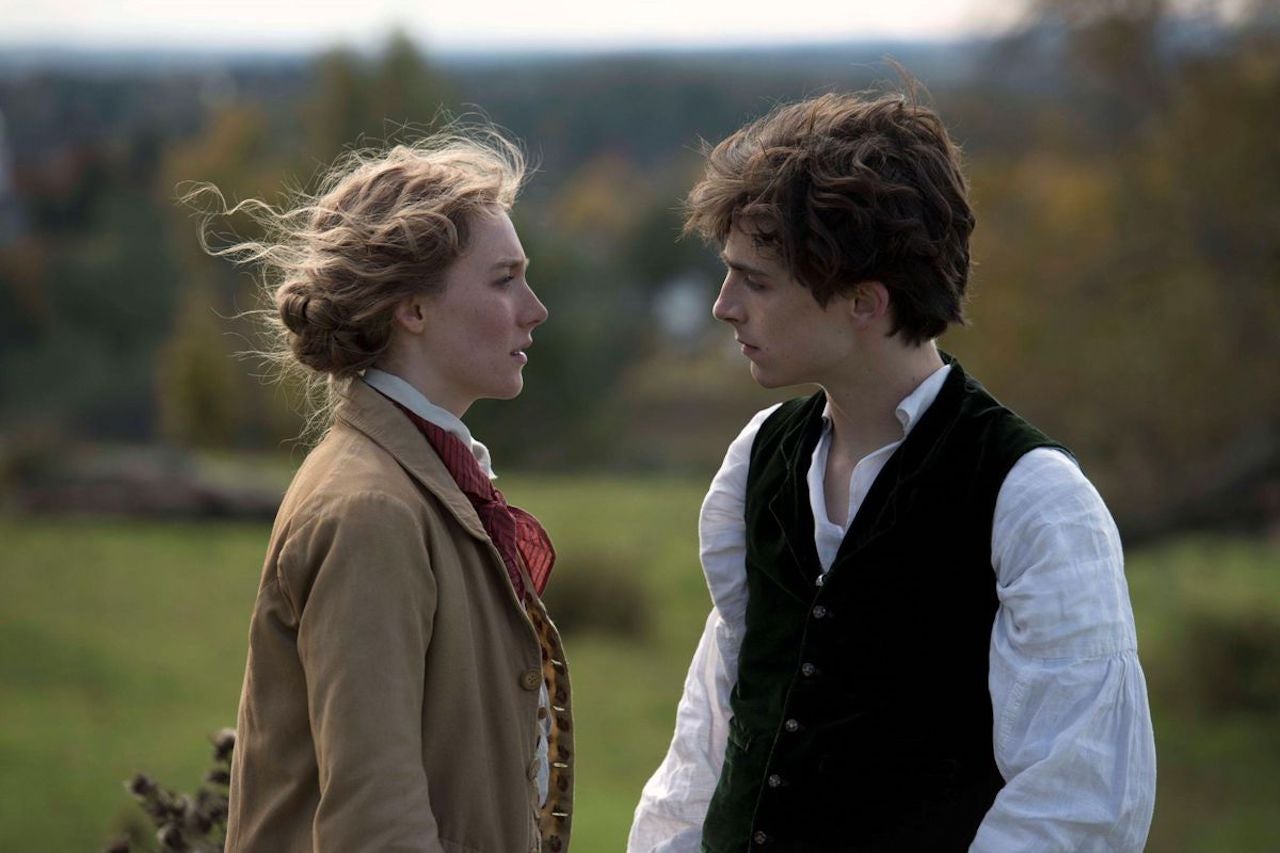As one of my all-time favourite films, Little Women holds a special place in my heart. With the recency of International Women’s Day, I thought it would only be fitting to explore the significance of the March sisters, as their experiences and beliefs have most definitely left a lasting impression on young women everywhere.
I’d like to make it clear that the opinions expressed in this article are solely about the 2019 adaption of the novel, as I believe it to be the most accurate and faithful portrayal.
Through her innovative narrative structure and evocative visual storytelling, director Greta Gerwig breathes new life into Louisa May Alcott’s timeless tale Little Women. As thrilling as the novel is, Gerwig’s approach and bold configuration are commendable as this film invites audiences to reconsider the significance of femininity and womanhood in the face of societal expectations.
By highlighting the individuality and empowerment of each March sister, Little Women serves as a poignant reminder that women are not only destined for love and motherhood but can also have dreams and talents in a male-dominated society.
The back and forth between childhood innocence and adult responsibilities throughout the film emphasizes the significance of growth and maturity that each March sister undergoes.
The four March sisters, Jo, Meg, Beth, and Amy, all represent different forms of women who are equally beautiful, intelligent, and challenged. Although they each follow their own journeys in life and marriage, they have the ability to deeply resonate with audiences as they forge memorable paths shaped by their individual experiences, values, and aspirations.
Let’s take a look at the intricate lives of each March sister to discover how they have fearlessly redefined womanhood in their own right by pushing against the gender stereotyping they’ve been subjected to.
Although each sister has their own burdens, they make it clear what it is they truly want out of life.
Jo March
“Women, they have minds, and they have souls, as well as just hearts. And they’ve got ambition, and they’ve got talent, as well as just beauty. I’m so sick of people saying that love is just all a woman is fit for…”
– Jo March

Jo March, the second oldest sister and the main focus of both the books and the film adaption, is the passionate, independent risk-taker of the group who strives to become a well-established writer. She resists the notion of women being solely defined by their ability to bear children or overlooked for mundane reasons, emphasizing her wish for them to be recognized for their multifaceted identities and contributions to society.
Her choice to go by her nickname Jo instead of her given name, Josephine, also reflects her strong and bold personality. She is a character who defies conventional gender norms and expectations of femininity, as her preference of going by a more masculine-sounding name conveys her need to carve out her own identity instead of following the path laid out for her and the women during her time.
She craves to be taken seriously in a society where patriarchal power often undervalues the voices and contributions of women.
Meg March
“Just because my dreams are different than yours doesn’t mean they’re unimportant. I want a home and a family, and I’m willing to work and struggle, but I want to do it with John.”
Meg March, the eldest sister and perhaps the most traditional, continuously highlights her ache for a life that encompasses both conventional domesticity and personal fulfillment. She wants a family, children, and familial love but feels embarrassed by these desires at the same time because of the different paths her sisters wish to take.
She wants to be ambitious and create her own journey that embraces her personal vision of happiness, even if that vision reflects her flaw of yearning for material wealth and luxury she cannot afford. This becomes an even larger battle when she falls in love with John, a humble tutor who doesn’t have much to his name.
She eventually learns that she must balance her hopes with her love for John and make sacrifices that might not give her the life she dreamed of but the life she is most comfortable with.
Beth March
“It’s like the tide going out. It rolls out slowly, but it can’t be stopped.”
Beth March, who gets dealt an unfortunate hand marked by illness and fragility, is possibly the wisest March sister. Her profound understanding of human existence and her unwavering compassion and need to help others showcase her selflessness as well as her downfall. Her wisdom lies in her ability to see beauty in all aspects of life, allowing her to fully appreciate every moment and find solace in those around her.
With her selflessness and kind heart, it is unfortunate that the second youngest March sister is the one to suffer from scarlet fever she caught from helping a family in need.
Although Beth may not have played the most significant role in the film, she offers a powerful reminder of the importance of empathy, kindness, and resilience in the face of adversity.
Amy March
“I’m not a poet; I’m just a woman.”
Last but most certainly not least, we have Amy March, the youngest March sister and my personal favourite. It’s easy to find yourself being able to relate to Amy and sympathize with some of the struggles she faces throughout the film, as her being the youngest child has caused her to be often overshadowed and overlooked by her sisters.
She wishes to become a famous painter and even accompanies her Aunt March to Paris to live out this dream. Here, she is courted by an older, richer man and admits to Laurie, another meaningful character and her childhood crush, that she isn’t ashamed or embarrassed to marry rich. She understands that the society she lives in wouldn’t allow her as a woman to make a sufficient income to support herself and her family. Whatever she makes would belong to her husband anyway, and the children would be his property as well.
She expresses, “So don’t sit there and tell me that marriage isn’t an economic proposition because it is.”
Her statement reflects a pragmatic understanding of the realities of the economy in the 19th century and those surrounding marriage as she recognizes the social and financial dynamics that often impact marital relationships. Amy’s pursuit of this style of life isn’t driven by selfishness or materialistic self-interest but rather by realism and an accurate view of how the world truly functions around her.
Her character encapsulates the essence of a woman who aches to be released of society’s hold on her with its predefined labels as she acknowledges that her worth extends far beyond any singular title or role that is imposed on her. Her response to Laurie reflects this as she says, “I’d be respected if I couldn’t be loved.”
As Louisa May Alcott so perfectly states in her novel, “The world is hard on ambitious girls.” If we want too much, we are criticized. If we want nothing, we are judged and ridiculed.
Like the March sisters, we’re all unique and beautiful in our own ways. We all wish for happiness and yearn for love. But we also aspire to live out our dreams to the fullest extent. We can form our own opinions and have our thoughts and independence. We can chart new paths and pursue whatever we want, even if our world puts limitations on us because we are women.





